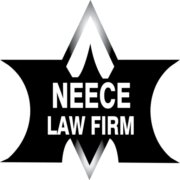Best Mortgage Lawyers in North Carolina
Share your needs with us, get contacted by law firms.
Free. Takes 2 min.
Free Guide to Hiring a Real Estate Lawyer
Or refine your search by selecting a city:
List of the best lawyers in North Carolina, United States
About Mortgage Law in North Carolina, United States
Mortgage law in North Carolina governs the process of obtaining and maintaining a secured loan using real estate as collateral. A mortgage allows homebuyers to finance their purchase while the lender holds an interest in the property until the loan is fully repaid. North Carolina generally uses the deed of trust system, where a trustee holds the legal title on behalf of the lender, allowing for non-judicial foreclosure in the event of default. State-specific regulations outline borrowers' and lenders' rights and responsibilities, lending disclosures, loan origination rules, and foreclosure procedures.
Why You May Need a Lawyer
Navigating mortgage issues can be complex due to legal documents and significant financial stakes. You may wish to consult a lawyer if you are:
- Buying or refinancing a home and want help reviewing loan documents
- Facing foreclosure or dealing with missed payments
- Dealing with mortgage fraud, predatory lending, or unclear terms
- Litigating disputes over loan balances, interest rates, or lien priorities
- Negotiating loan modifications or short sales with your lender
- Experiencing issues with title transfers or satisfaction of mortgage
- Encountering disputes between co-owners or heirs regarding mortgaged property
A lawyer can ensure your rights are protected and help you navigate legal procedures unique to North Carolina.
Local Laws Overview
Mortgage transactions in North Carolina are regulated by both federal law and state-specific statutes. Here are some key aspects of local mortgage law:
- Deed of Trust System: Most residential mortgages use a deed of trust rather than a traditional mortgage, allowing for non-judicial foreclosure with specific notice requirements.
- Foreclosure Procedure: Foreclosures in North Carolina are generally non-judicial, requiring a hearing before the clerk of court and notice to the borrower. There are protections and grace periods for homeowners.
- Right of Redemption: Borrowers do not have a statutory right of redemption after the foreclosure sale is complete. However, certain periods prior to the sale allow for curing the default.
- Lending Disclosures: Lenders are required to comply with the North Carolina Home Loan Protection Act, which provides extra disclosures and protections for high-cost loans.
- Recording Requirements: Mortgages and deeds of trust must be properly recorded with the local Register of Deeds to be enforceable against third parties.
- Deficiency Judgments: Lenders may seek a deficiency judgment if sale proceeds do not cover the full debt, subject to certain legal restrictions.
- Mortgage Satisfaction: Lenders are required by law to record a satisfaction of mortgage when the debt has been paid in full.
Frequently Asked Questions
What type of security instrument is commonly used for mortgages in North Carolina?
North Carolina typically uses a deed of trust, in which a neutral third-party trustee holds the legal title to the property until the debt is repaid.
How does foreclosure work in North Carolina?
Foreclosures are generally non-judicial, meaning the lender does not need to file a lawsuit but must follow strict notice and hearing procedures with the clerk of court before selling the property.
Can I stop a foreclosure once it has started?
You may stop a foreclosure by curing the default, paying off the loan, or working out a loss mitigation agreement, but these options must be exercised before the final sale.
Do I have a right to redeem my property after foreclosure?
North Carolina law does not offer a statutory right of redemption after the foreclosure sale, but you have up until the sale date to pay off the loan and secure your property.
What disclosures must lenders provide?
Lenders must comply with both federal Truth in Lending Act (TILA) requirements and the North Carolina Home Loan Protection Act for high-cost or subprime mortgages, which mandate specific disclosures about interest rates and loan features.
Can a lender pursue me for a deficiency after foreclosure?
Yes, lenders can seek a deficiency judgment if the foreclosure sale does not cover your loan balance, but they must follow specific legal procedures and defenses may be available depending on your case.
How can I verify that my mortgage is paid off?
When you pay off your mortgage, the lender is required to record a Satisfaction of Mortgage with the local Register of Deeds office, indicating the loan is fully paid.
What is the role of the trustee in a deed of trust?
The trustee acts as a neutral party who holds title to the property and conducts the foreclosure sale if necessary, according to the terms of the deed of trust.
Are there laws preventing predatory lending in North Carolina?
North Carolina enforces some of the nation’s strictest anti-predatory lending laws, especially for high-cost home loans, with regulations limiting fees, balloon payments, and certain abusive lending practices.
Do I need a lawyer to buy or refinance a home?
While not strictly required, consulting a lawyer can help you understand your rights, avoid common pitfalls, and ensure all legal documents are accurate and in your best interest.
Additional Resources
For further information or assistance with mortgage-related legal issues in North Carolina, consider the following resources:
- North Carolina Department of Justice - Consumer Protection Division
- North Carolina Real Estate Commission
- North Carolina Housing Finance Agency (NCHFA)
- Legal Aid of North Carolina
- North Carolina State Bar Lawyer Referral Service
- Your local county Register of Deeds office
Next Steps
If you believe you need legal help regarding a mortgage issue:
- Gather all relevant documents, including loan agreements, payment records, and correspondence from your lender.
- Reach out to a qualified real estate attorney with experience in North Carolina mortgage law.
- Schedule a consultation to discuss your specific situation and understand your options.
- If facing urgent issues such as foreclosure, act promptly, as time limitations can affect your legal rights and available remedies.
- Utilize local resources, non-profit agencies, or lawyer referral services for additional support and information.
Taking these steps can help ensure your interests are protected and guide you toward the best resolution for your mortgage concerns in North Carolina.
Lawzana helps you find the best lawyers and law firms in North Carolina through a curated and pre-screened list of qualified legal professionals. Our platform offers rankings and detailed profiles of attorneys and law firms, allowing you to compare based on practice areas, including Mortgage, experience, and client feedback.
Each profile includes a description of the firm's areas of practice, client reviews, team members and partners, year of establishment, spoken languages, office locations, contact information, social media presence, and any published articles or resources. Most firms on our platform speak English and are experienced in both local and international legal matters.
Get a quote from top-rated law firms in North Carolina, United States — quickly, securely, and without unnecessary hassle.
Disclaimer:
The information provided on this page is for general informational purposes only and does not constitute legal advice. While we strive to ensure the accuracy and relevance of the content, legal information may change over time, and interpretations of the law can vary. You should always consult with a qualified legal professional for advice specific to your situation.
We disclaim all liability for actions taken or not taken based on the content of this page. If you believe any information is incorrect or outdated, please contact us, and we will review and update it where appropriate.
Browse mortgage law firms by city in North Carolina
Refine your search by selecting a city.













